I have to walk past a cemetery every time I need to get to the Metro.
Rather than scurrying away with my head down, I slow down and peek through the gate.
If I have enough time and €3, I go in without fail.
It might seem strange to wander aimlessly through a graveyard, but the non-Catholic cemetery is one of the most tranquil spots in all of Rome.
Piramide metro is just beyond the wall, and traffic speeds along Viale Ostiense, but the cemetery itself feels almost silent.
Among the headstones, are pomegranate trees and wild strawberries. Perfect hedges, cypress trees, and tiny purple flowers populate the space.
The Cimitero Acattolico is also sometimes call the Cimitero dei protestanti or Cimitero degli Inglesi.
Non-Catholic cemetery, Protestant graveyard, the English cemetery.
Many names for the same place, nestled on one edge of Testaccio and sitting a few meters outside of the ancient Aurelian walls.
However the “Protestant Cemetery” is a bit of a misnomer. People from many faiths, including Islam, Zoroastrianism, Buddhism and Confucianism, are all buried here.
It is the final resting place of writers, diplomats, artists and scholars. Most famous of all may be English poets Shelley and Keats.
I am always struck by the grave of American sculptor William Wetmore Story.
He is buried with his wife Emelyn, under an Angel of Grief which he himself designed.
In addition to the nearly 300 gravesides, the Cemetery is also home to a cat sanctuary.
If you turn left as you enter the gate of the cemetery, you will leave behind the shadowed walkways and pop out into a meadowy space in front of the recently restored Pyramid of Cestius.
In this section, you’ll find the grave of John Keats, who died in Rome from tuberculosis at the age of 25.
His dying request was to be laid to rest under a tombstone bearing no name or date, only the words, “Here lies One whose Name was writ in Water.”
It is a beautiful and calm space to visit if you are ever in the area.
I have to agree with Shelley, who wrote: “It might make one in love with death, to think that one should be buried in so sweet a place.”
Cimitero Acattolico (Campo Cestio)
Via Caio Cestio, 6
00153 Roma, Italy
Open: Monday-Saturday 9:00 am – 5:00 pm (last entrance at 4:30 pm), and Sundays 9:00 am – 1:00 pm (last entrance at 4:30 pm).
Cost: Suggested donation of €3.

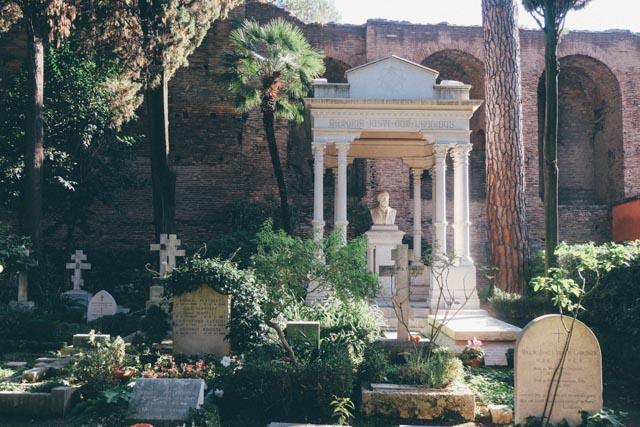
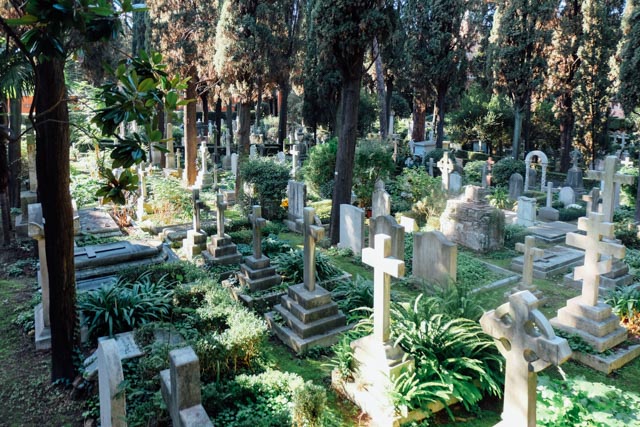
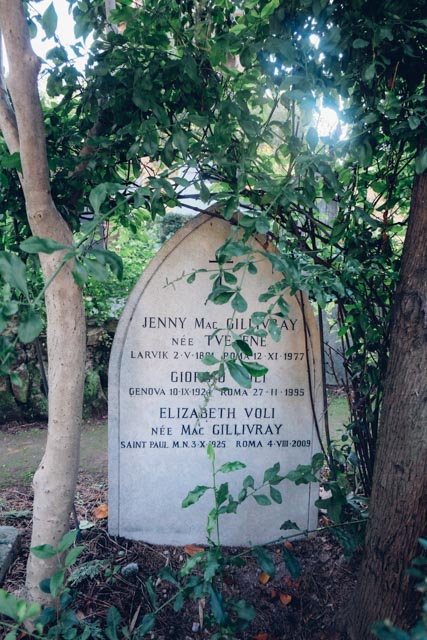
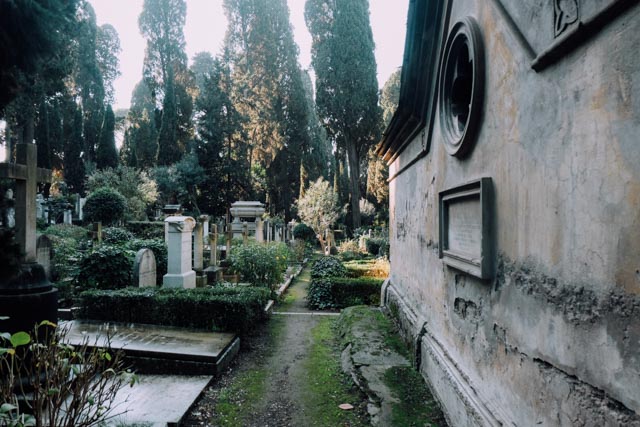
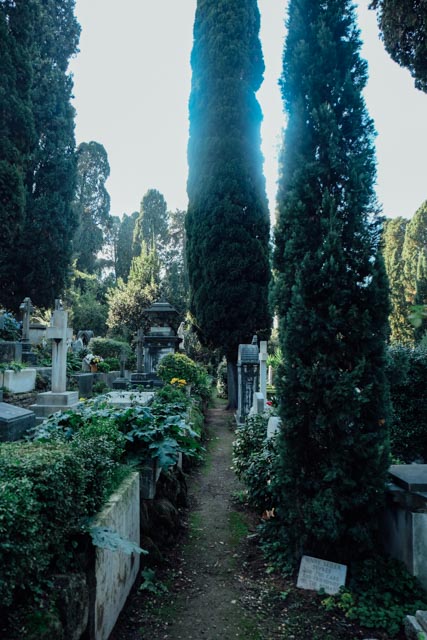
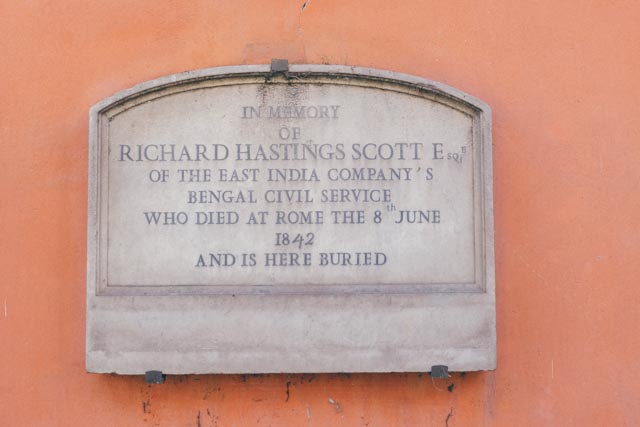
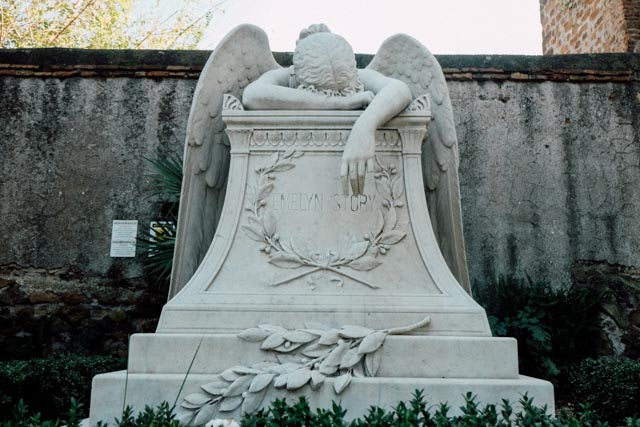
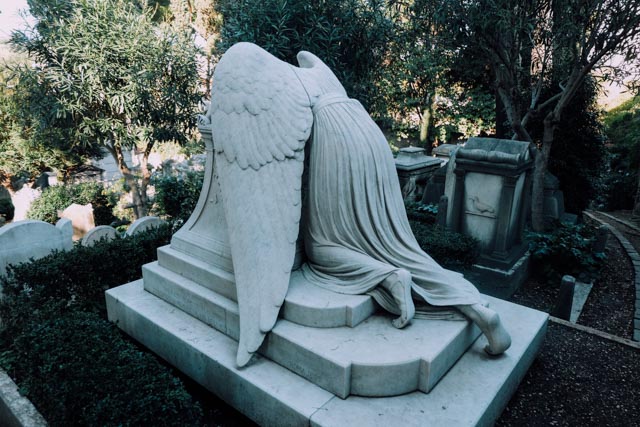

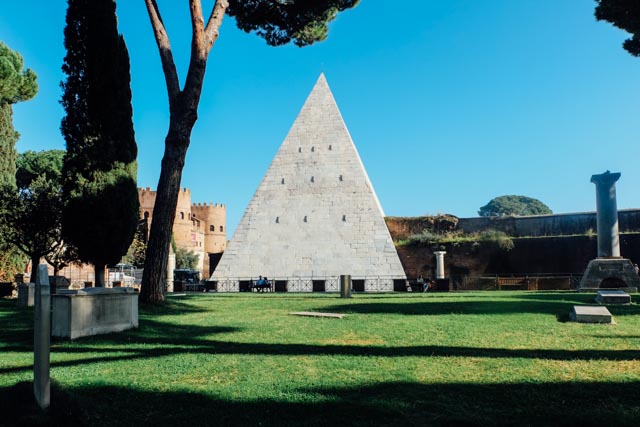
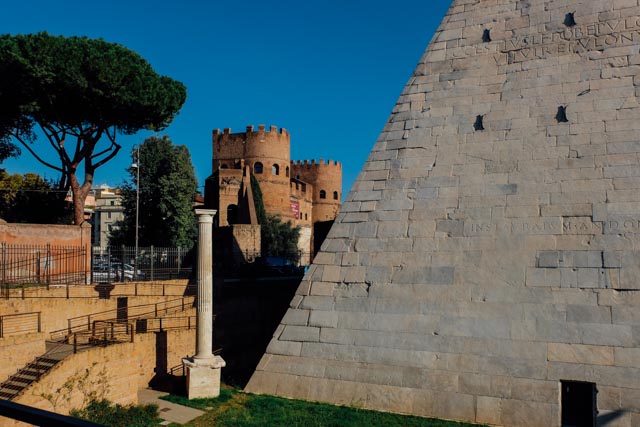
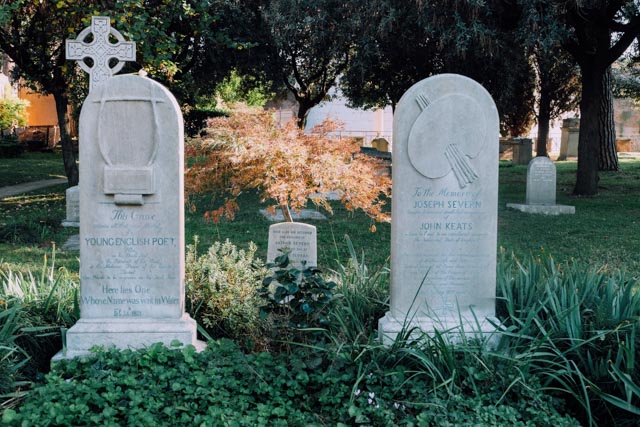
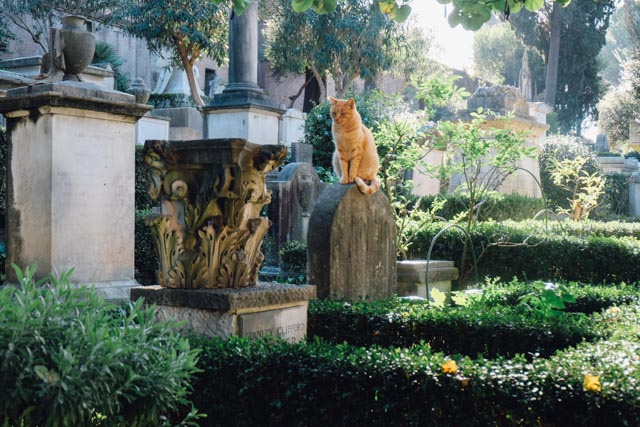
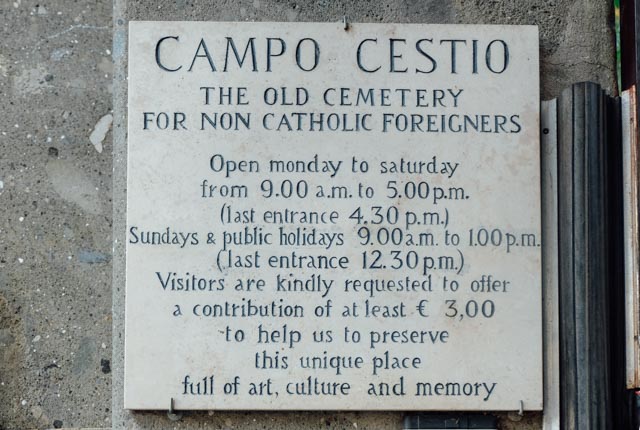
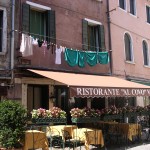

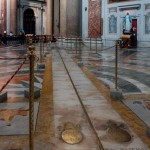
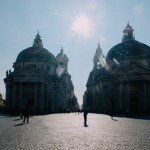
Pingback: Unexpected Rome: The Non-Catholic Cemetery &nda...
Do feel free to make a donation to the cemetery. I leave a bit of extra there each time I visit as it really takes a lot of maintenance.
We went to Bill Steak in that neighborhood and loved it! Didn’t realize all that was there! I hope we make it back so we can explore the cat sanctuary and all that is around there!!
Kerry
amazing place; so tranquil and gives a beautiful sense about death. Can’t wait to go back to visit Keats and Shelley.
You know, from all of the “posts”, how much the visitors, like me, love the tranquility of this beautiful garden. As a landscape designer, I certainly cherish the care that your maintenance team takes. I also want to commend the team in the office. They are always so cordial and helpful and, I like that they have kept the sketch I did of my favorite Angel on display in the office.
Thank you all. I hope you are all safe and well. I hope to return in Spring.🤞
Thank you, Madam ! Very inspiring…
1877 Oscar Wilde visited Keats grave there and wrote:
As I stood beside the mean grave of this divine boy, I thought of him as of a Priest of Beauty slain before his time; and the vision of Guido’s St. Sebastian came before my eyes as I saw him at Genoa, a lovely brown boy, with crisp, clustering hair and red lips, bound by his evil enemies to a tree, and though pierced by arrows, raising his eyes with divine, impassioned gaze towards the Eternal Beauty of the opening heavens. And thus my thoughts shaped themselves to rhyme:
HEU MISERANDE PUER
Rid of the world’s injustice and its pain,
He rests at last beneath God’s veil of blue;
Taken from life while life and love were new
The youngest of the martyrs here is lain,
Fair as Sebastian and as foully slain.
No cypress shades his grave, nor funeral yew,
But red-lipped daisies, violets drenched with dew,
And sleepy poppies, catch the evening rain.
O proudest heart that broke for misery!
O saddest poet that the world hath seen!
O sweetest singer of the English land!
Thy name was writ in water on the sand,
But our tears shall keep thy memory green,
And make it flourish like a Basil-tree.